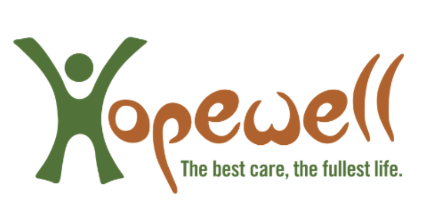GUELPH – Hopewell Children’s Homes is pleading with the province to increase funding to the developmental services sector by five per cent this year, with annual inflationary increases across the sector to ensure long-term sustainability.
“We are at a critical juncture for the developmental services industry, and we need immediate and ongoing funding from the Government of Ontario to continue helping residents with developmental disabilities,” says Hopewell CEO Maria Zegarac.
“These funds will not only safeguard our most vulnerable citizens, but will build and sustain the foundations of a caring and prosperous community – an Ontario where everyone can belong, feel at home – and have hope.”
Hopewell is a Guelph-based charity with seven locations that supports over 200 children and adults with developmental disabilities and special needs. It offers residential services, in-home care and day programs.
In its pre-budget submission to the provincial government, Hopewell lays out a blueprint for protecting and strengthening the developmental services industry.
A 5% critical base budget increase to all developmental services agencies – approximately $145 million sector-wide – would not only be in line with budget increases to similar sectors such as mental health and addictions, but it would stabilize services providing quality care to families and persons in need until a new funding model can be set in place.
This urgent call stems from the “long-standing and consistent under-funding” of the developmental service sector, officials say, which has seen only a 2% increase in funding over the past 13 years, despite Consumer Price Index (CPI) rising more than 40% in that same time.
“We’re working on our budget now and we’re proud to say we have not reduced the level of staff or closed services,” Zegarac told the Advertiser.
“But without a critical infusion of funding, it will impact our services down the road.”
In its preliminary fiscal plan, the Ontario government has earmarked a 2.5% increase in funding in 2024-25 to developmental service providers, but a 0% increase in 2025-26.
“We’ve seen more charities and service agencies being forced to reduce or shut down services as costs continue to rise without a comparable increase in funding, which is placing even more pressure on an overstretched system,” Zegarac said.
“Agencies that have survived this funding drought have restructured their teams and sourced additional revenue in every way possible .
Breaking point
“But we are now at a breaking-point, and without additional provincial funding at this critical juncture, more agencies could face the threat of closure, with the complete collapse of the developmental services sector.”
Hopewell has seven locations, one in Ariss and the rest in Guelph, plus two administrative centres that also offer day programs.
Zegarac said the agency serves 200 clients that range in age from 7 to 70. But there are another 200 people in the region on a waiting list for services.
Even with a 2.5% increase in base funding, it’s not enough to be able to touch that list, she said.
“Some of these people have been on the list for years, even decades,” she said. “These families are at the end of their rope. And we know often these loved ones wind up entering other parts of the system – hospitals, homelessness.
“For us to continue, we really need a greater partnership with the ministry (of Children, Community and Social Services.)”
Hopewell is also requesting additional ongoing funding of $700,000 to account for increased support needs required for some of its more complex residents.
Without it, Zegarac warns, there is a compromise to the entire support structure, which ultimately impacts the people Hopewell serves.
Hopewell Homes is similar to Community Living Guelph Wellington, which has already put out the call to the ministry for more funding.
Community Living has had to lay off staff and cancel day programs to balance its budget.




